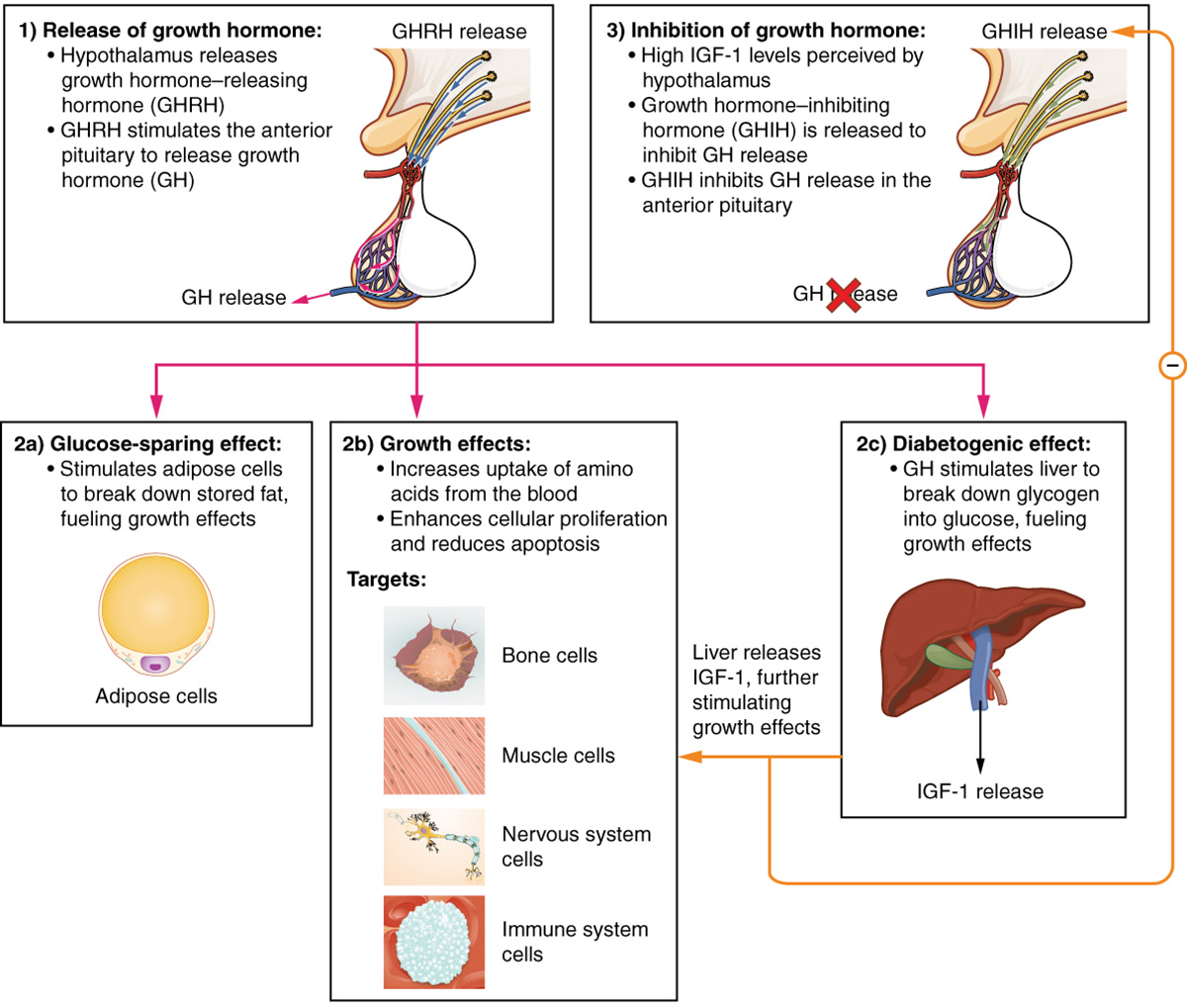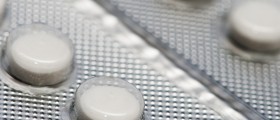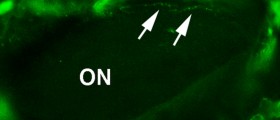
Human growth hormone (HGH) is produced by the pituitary gland, a small gland inside the skull and in the brain. The hormone is essential for all humans and in case its level is within a normal range a person grows and develops appropriately. The hormone is most significant for children because until they reach the end of puberty they undergo intensive growth and development. Apart from that human growth hormone has several more almost equally essential roles. For example, it increases calcium retention and strengthens mineralization of bone tissue. It also increases muscle mass, promotes lipolysis and increases protein synthesis. The hormone is responsible for adequate growth of all internal organs as well as the brain and is necessary for proper hemostasis. Reduction of liver uptake of glucose, promotion of gluconeogenesis in the liver and maintenance of pancreatic islets are several more functions of human growth hormone. And finally, the hormone is necessary for proper function of the immune system.
How Is Artificial Human Growth Hormone Made?
Nowadays human growth hormone is made with the assistance of genetic engineering. The hormone used be obtained from the pituitary gland taken from cadavers. Once the hormone was obtained and properly processed it was administered in a form of injections. Today the hormone can be easily administered in a form of pill and nasal spray hence there is no need for injections.
What Is Human Growth Hormone Used for?
Treatment with artificial growth hormone is indicated and approved in only a few limited cases. Since there are serious potential side effects patients require careful monitoring. The hormone is used as a replacement therapy in adult people suffering from deficiency of human growth hormone (deficiency that started in childhood or in adulthood). Furthermore, even though the hormone has been used for conditions associated with short stature non-related to HGH deficiency the results have not been very dramatic. The hormone can be administered to people suffering from Turner syndrome, chronic renal failure, Prader-Willi syndrome, intrauterine growth retardation and severe idiopathic short stature.
What Are Side Effects of Human Growth Hormone?
Side effects of human growth hormone generally occur with higher doses. However, they may occur even if one takes lower doses hence proper monitoring and supervision by a medical expert is a must.
The most common side effect of an artificial human growth hormone is acromegaly, a condition in which bones and connective tissue grow excessively and lead to specific changes in one's appearance. Apart from acromegaly there are several more side effects of human growth hormone and they include premature death, heart enlargement, low blood sugar with increased risk of a diabetic coma, excessive hair growth, increased water retention, liver damage and damage to thyroid function.
















-In-Infants-And-Older-Children_f_280x120.jpg)
Your thoughts on this
Loading...